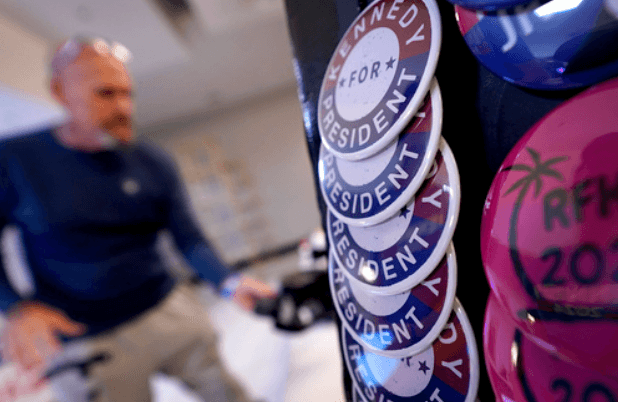How Third Parties Influenced the 2024 Election
Due to the combination of winner-take-all state Electoral College elections and first-past-the-post rules for the Electoral College, it is effectively impossible for a third party to win a presidential election. However, this does not mean third parties lack influence, and this year was no different, with third-party candidates largely helping Donald Trump’s campaign.
The most prominent third-party candidate in this election cycle was Robert F. Kennedy Jr., nephew of John F. Kennedy and son of former Attorney General Robert F. Kennedy. He initially announced his bid for the Democratic Party’s presidential nomination on April 19, 2023. However, in October 2023, he decided to run as an independent candidate after concluding it would be fruitless to challenge President Joe Biden for the Democratic nomination. This shift triggered the extensive process of gaining ballot access, requiring millions of signatures and hundreds of thousands of volunteers to ensure Kennedy could appear on ballots nationwide.
By August 23, 2024, the Friday after the Democratic National Convention, Kennedy ultimately decided he would not be able to win the presidency and formally endorsed Donald Trump. At the time, Kennedy was polling at 4.5%, a significant drop from a month earlier when he was polling at 8.7%, before Biden had exited the race. According to internal Trump campaign polling, Kennedy’s withdrawal from the race was projected to result in a net 25% gain for Trump’s support, as a greater share of Kennedy’s voters leaned toward Trump than toward Harris. This gain was expected to provide Trump with about a 1% boost in multiway polling.
Despite the endorsement, the overall dynamics of the race remained relatively unchanged. Harris maintained her lead over Trump in head-to-head polling, consistently ahead by 1-2 points throughout September, the same margin she held before Kennedy’s endorsement. In multiway polls, Harris led Trump by 2-3 points until late October, when her lead began to narrow slightly.
While the precise effect of Kennedy’s endorsement is difficult to quantify, it certainly benefited Trump. Now that Trump announced his intention to nominate Kennedy to serve as Secretary of Health and Human Services, Kennedy received strong approval ratings. Among all cabinet nominees, Kennedy had the highest percentage of both overall voters and Trump supporters who rated him as a strong choice, according to the latest CBS poll.
Although Kennedy dominated the third-party spotlight in this election cycle, he was not the only third-party candidate in the race. Jill Stein, the Green Party candidate who also ran in 2012 and 2016, and Libertarian candidate Chase Oliver were also in contention. However, both candidates performed below expectations. Stein ultimately received 0.5% of the vote, while Oliver garnered just 0.4%.
Both vote totals likely reflected more would-be Kamala Harris voters than Trump voters. Oliver represented a more socially liberal faction of the Libertarian Party, while more conservative groups, such as the Libertarian Party of New Hampshire, endorsed Trump. Additionally, the Green Party has historically drawn more support from Democratic voters.
However, in every swing state, even if all of Stein’s and Oliver’s votes had gone to Harris, it would not have been enough to secure her victory. This contrasts with 2020, when a redistribution of Libertarian votes to Trump would have flipped Arizona, Georgia, and Wisconsin, leading to a 269-269 tie in the Electoral College.
Although third-party votes did not significantly affect the presidential race’s outcome, they played a critical role in several Senate contests. In Wisconsin, Democratic incumbent Tammy Baldwin narrowly defeated Republican Eric Hovde by 0.9%, while the Libertarian candidate received 1.3% of the vote and the America First Party candidate garnered 0.8%. If Hovde had captured these votes, he likely would have won the seat.
In Michigan, Elissa Slotkin defeated Mike Rogers by just 0.3 points, while candidates from the Libertarian, Green, and U.S. Taxpayers parties collectively received more votes than the margin between Slotkin and Rogers. Conversely, in Pennsylvania, Republican Dave McCormick narrowly unseated incumbent Democrat Bob Casey, winning by 0.2 points. Once again, the vote totals for the Libertarian, Green, and Constitution parties exceeded the margin of victory.
2024 Key Senate Races
Get caught up on the most important polling for the most consequential races of 2024.

